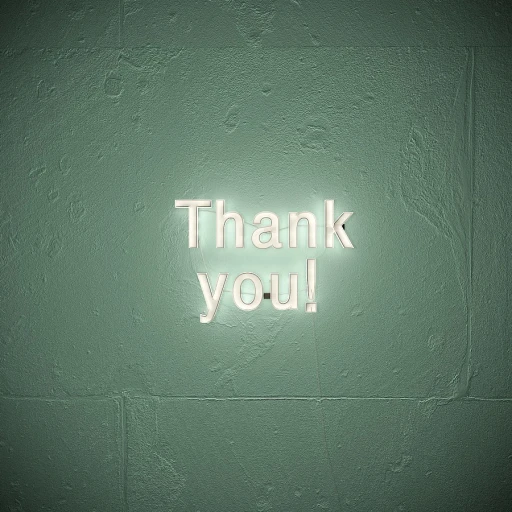Understanding the Role of Communication in HR Interviews
The Power of Communication in Human Resources Interviews
In the field of human resources, communication plays an integral role during job interviews. Candidates who effectively express their thoughts, both clearly and succinctly, are often the ones who leave a memorable impression on the interviewing team. Whether through verbal communication or subtle non-verbal cues, the ability to communicate effectively is a skill every candidate should hone. When we talk about communication skills in an HR context, it’s not just about speaking clearly. It covers a wide array of elements, including how well a candidate can describe a specific instance from their past experience, articulate their professional narrative, and even how they handle difficult interview questions. Communication in an interview is a two-way street. It's as much about speaking as it is about listening. Candidates must practice active listening and understand how to adapt their communication style to the company they are interviewing with. This not only helps the candidate answer questions in a way that aligns with the company's ethos but also shows an understanding of the role they are vying for. Verbal communication includes the candidate's ability to describe a time when they faced a challenge at work and explain their approach to conflict resolution or teamwork. This is a chance to highlight their experience and provide a sample answer that demonstrates their capability and willingness to work effectively with team members. It's important to keep answers concise, yet informative, showing a balance of confidence and humility. Non-verbal communication, while less obvious, is equally significant. Body language during an interview can say a lot about a candidate's confidence level and their enthusiasm for the job opportunity. Maintaining good eye contact, appropriate facial expressions, and a steady posture are keys to sending positive signals to the interviewer. Time is of the essence in any interview setting. Having the ability to manage time effectively by delivering succinct answers, while also allowing space for additional questions and interactions, demonstrates a candidate's organizational skills. Furthermore, those seeking to improve their communication skills for HR job interviews can also refer to our specialized tips on mastering the art of communication in job interviews. Here, you’ll find insights to streamline your preparation and ramp up your interview game, ensuring you're not just answering questions, but engaging in a meaningful dialogue.Verbal Communication: Articulating Your Thoughts Clearly
Expressing Your Thoughts Effectively
When it comes to HR job interviews, verbal communication is the bread and butter of showcasing your skills. It’s not just about what you say, but how you say it. Clear articulation can be the difference between a good impression and a great one. Think of it as telling your story in a way that resonates with your audience. The interviewer wants to see your ability to communicate ideas clearly, which is crucial in a role where you'll often be the bridge between the company and its employees.
Start by practicing active listening. This means fully concentrating, understanding, and responding thoughtfully to questions. It shows respect and interest in the conversation, making you appear more engaged and professional. For example, when asked about a time you resolved a conflict, listen carefully to the question, pause to think, and then describe the situation, your actions, and the outcome succinctly.
Tips for Clear Communication
- Be Concise: Avoid long-winded answers. Stick to the point and provide relevant examples that highlight your experience and skills.
- Use Simple Language: Avoid jargon unless necessary. Remember, clarity trumps complexity.
- Practice Your Answers: While you shouldn’t memorize responses, having a mental outline can help you stay on track.
- Engage with Your Audience: Make eye contact and use appropriate body language to reinforce your verbal communication.
Adapting Your Communication Style
Every company has its unique culture, and your ability to adapt your communication style can be a game-changer. Research the company’s communication style beforehand. Do they value formal or informal communication? Are they more direct or do they prefer a collaborative approach? Tailor your responses to align with their style, showing that you can fit seamlessly into their team.
For instance, if you're interviewing with a tech startup known for its casual atmosphere, you might want to adopt a more relaxed tone while still maintaining professionalism. On the other hand, a corporate environment might require a more formal approach.
Remember, verbal communication in interviews is your chance to shine. It's about presenting yourself as a confident, capable candidate who can handle the demands of the HR role. With practice and preparation, you can master this skill and leave a lasting impression on your interviewers.
Non-Verbal Cues: Reading and Responding to Body Language
Reading Body Language: A Two-Way Street
In any hr interview, communication isn't just about what you say—it's also about how you say it without words. Mastering non-verbal cues can significantly influence your interview success. Think of it as a real-time feedback loop: the interviewer's body language tells you how you're doing, and your own non-verbal signals either reassure or make the interviewer question hiring you. Start by focusing on the basics of body language. Make eye contact but don't stare. It shows confidence and honesty without being intimidating. Maintain good posture to convey alertness and interest. Avoid crossing your arms, as it can seem defensive. Next, tune into the other side of the conversation. Is the interviewer leaning in? It's a good sign—they're engaged. Are they looking at the clock? Maybe it's time to wrap up or adjust your approach. Recognizing these signals in real-time helps adapt your communication so you stay on track. Active listening isn't just a verbal skill; it's intertwined with non-verbal communication too. Nod occasionally to show you understand and are paying attention. Employ facial expressions to match what's being discussed. Smiling when appropriate can make you seem warm and approachable. Non-verbal cues extend beyond face-to-face interactions. If you're doing a remote interview, be sure to test your technology beforehand to avoid glitches. Position your camera at eye level and ensure you're in a well-lit area. Even simple things like background and attire play into the image you project to the team. Understanding how to read and respond to body language can make or break an interview. Being conscious of this silent dialogue not only helps in answering questions properly but also demonstrates your ability to communicate effectively with future work colleagues. For more communication techniques, check out other insights on mastering the art of communication in job interviews.Crafting Your Narrative: Storytelling in Interviews
Weaving Your Personal Story Into the Conversation
Imagine you're sitting in an interview, and you're asked to "describe a time" when you had to tackle a challenge at work. This is where storytelling becomes a powerful tool. Your task is not just to answer the question but to weave a narrative that showcases your skills and experience in human resources. To start, consider your relevant experiences where your communication style helped navigate tricky situations. For example, recount an event where your written communication skills diffused a potential conflict among team members. Highlighting specific examples brings your skills to life, making it relatable and memorable to your interviewers.Bringing Your Experiences to Life
When sharing your stories, aim to illustrate your role and the impact of your actions on the team or company. Use concrete instances where you demonstrated flexibility and adaptability, showing your ability to work effectively within varied scenarios. For instance, during a past team project, perhaps there was a communication breakdown that you resolved by employing active listening and verbal communication. Paint a vivid picture that resonates with the hiring professionals. Emphasize 'actions and results' in your responses. Show the steps you took, the teamwork involved, and the outcomes achieved. Providing a sample answer or example answer effectively demonstrates your problem-solving skills and ability to communicate clearly in high-stress situations.Practice Makes Perfect
Don't overlook the power of practice. Rehearse articulating your experiences, so you're ready to answer specific communication questions smoothly. Role-playing with a colleague or mentor can also help simulate the interview environment, boosting your confidence and clarity under pressure. Incorporate storytelling throughout your HR job interviews, demonstrating not just your experiences but your growth and learning. This approach exemplifies effective communication skills, preparing you for any questions that hiring professionals may throw your way.Handling Difficult Questions with Confidence
Handling Tricky Interview Questions with Poise
Interviews can feel like a game of mental gymnastics, especially when those curveball questions come your way. But don't sweat it; with the right approach, you can turn these challenges into opportunities to shine.
Stay Calm and Collected
First things first, take a deep breath. It's natural to feel a bit on edge when unexpected questions pop up. Remember, the interviewers aren't trying to trip you up; they're gauging how you handle pressure. Maintain your composure and give yourself a moment to think before answering.
Active Listening: Your Secret Weapon
Active listening is a game-changer in interviews. Pay close attention to the question, and if needed, ask for clarification. This not only buys you some time but also shows your genuine interest in providing a thoughtful response. Plus, it highlights your communication skills, a critical asset in any HR role.
Structure Your Response
When crafting your answer, consider using the STAR method (Situation, Task, Action, Result). This technique helps you structure your response clearly and concisely, making it easier for the interviewers to follow your thought process. For example, if asked about a time you resolved a conflict within a team, describe the situation, the task at hand, the actions you took, and the outcome.
Be Honest and Authentic
If you don't know the answer to a question, it's okay to admit it. Honesty is valued, and it shows integrity. You can express your willingness to learn and adapt, which are important qualities for any candidate. For instance, "I'm not familiar with that specific software, but I'm eager to learn and have quickly adapted to new tools in the past."
Showcase Your Experience
Whenever possible, tie your answers back to your past experience. Use examples that demonstrate your ability to handle similar situations, highlighting your skills and communication style. This not only reinforces your qualifications but also paints a picture of how you would fit into the company.
Practice Makes Perfect
Preparation is key. Rehearse common interview questions and think about how you'd respond to more challenging ones. Practice with a friend or mentor who can provide feedback on your verbal communication and body language. The more you practice, the more confident you'll feel when it counts.
By approaching difficult questions with confidence and clarity, you can demonstrate your candidate ability to think on your feet and communicate effectively—qualities that are sure to impress any HR professional.
The Follow-Up: Maintaining Professional Communication Post-Interview
Keeping the Conversation Going
So, you’ve nailed the interview and walked out feeling like a million bucks. But hold on, the process isn’t over yet. Maintaining effective communication post-interview is a vital part of the HR job interview process. It shows your professionalism and keeps you on the radar of the hiring team.
Why Follow-Up Matters
Sending a follow-up message is like the cherry on top of your interview sundae. It’s your chance to reiterate your interest in the role and to thank the interviewers for their time. This small gesture can set you apart from other candidates who might not bother. It also gives you an opportunity to briefly highlight how your skills and experiences make you the perfect fit for the job.
Crafting the Perfect Follow-Up
- Timing: Send your follow-up email within 24 hours of the interview. It shows enthusiasm and keeps you fresh in their minds.
- Personalization: Mention something specific from your interview conversation. This could be a question that sparked an interesting discussion or an example of a project you’re excited to tackle.
- Clarity: Keep it concise. A couple of paragraphs should suffice to express gratitude and reaffirm your interest.
Sample Follow-Up Email
Here’s a quick template to help you get started:
Subject: Thank You for the Opportunity
Dear [Interviewer's Name],
I wanted to express my gratitude for the opportunity to interview for the [Job Title] position at [Company Name] yesterday. I enjoyed learning more about the team and the exciting projects you have in the pipeline.
Our discussion about [specific topic discussed] was particularly engaging, and it reinforced my enthusiasm for joining your team. I am eager to bring my skills in [mention relevant skills] to contribute to [Company Name].
Thank you once again for the opportunity. I look forward to the possibility of working together.
Best regards,
[Your Name]Handling the Waiting Game
After you’ve sent your follow-up, it’s time to practice patience. The hiring process can take time, and it's important not to bombard the interviewers with questions. If you haven’t heard back after a week or so, it’s okay to send a polite inquiry about the status of your application. This shows continued interest without being pushy.
Building Long-Term Connections
Even if you don’t get the job, maintaining a professional relationship with the interviewers can be beneficial. Connect with them on professional networking platforms like LinkedIn. You never know when another opportunity might arise, or when you might cross paths again in the HR field.
Remember, mastering communication skills in HR job interviews isn’t just about the interview itself. It’s about how you present yourself before, during, and after the interview. This holistic approach can help you stand out as a candidate who’s not just skilled, but also thoughtful and professional.



